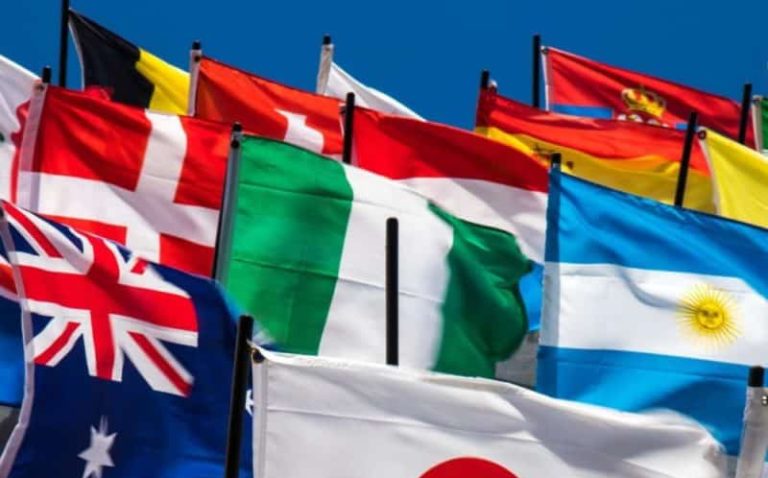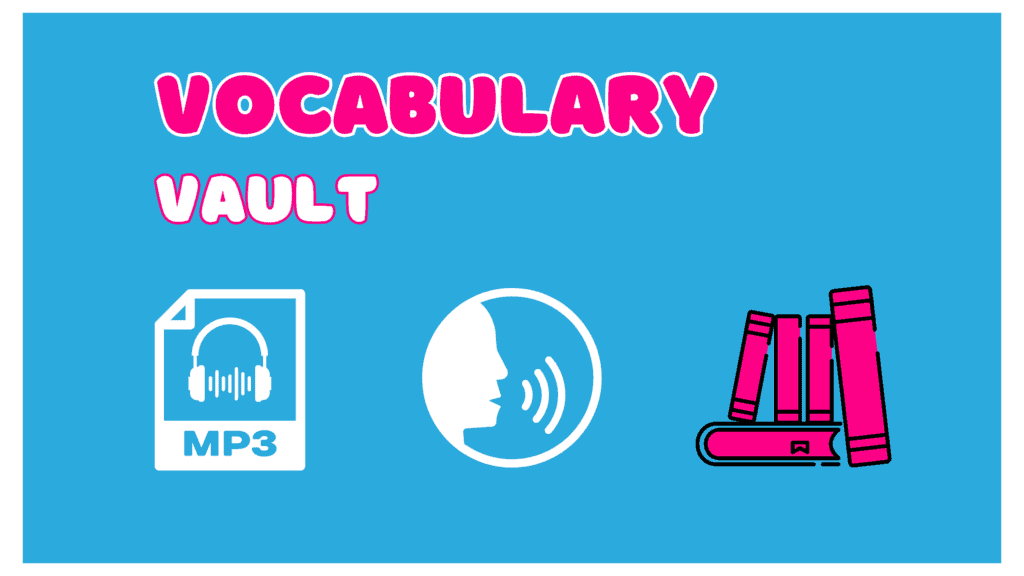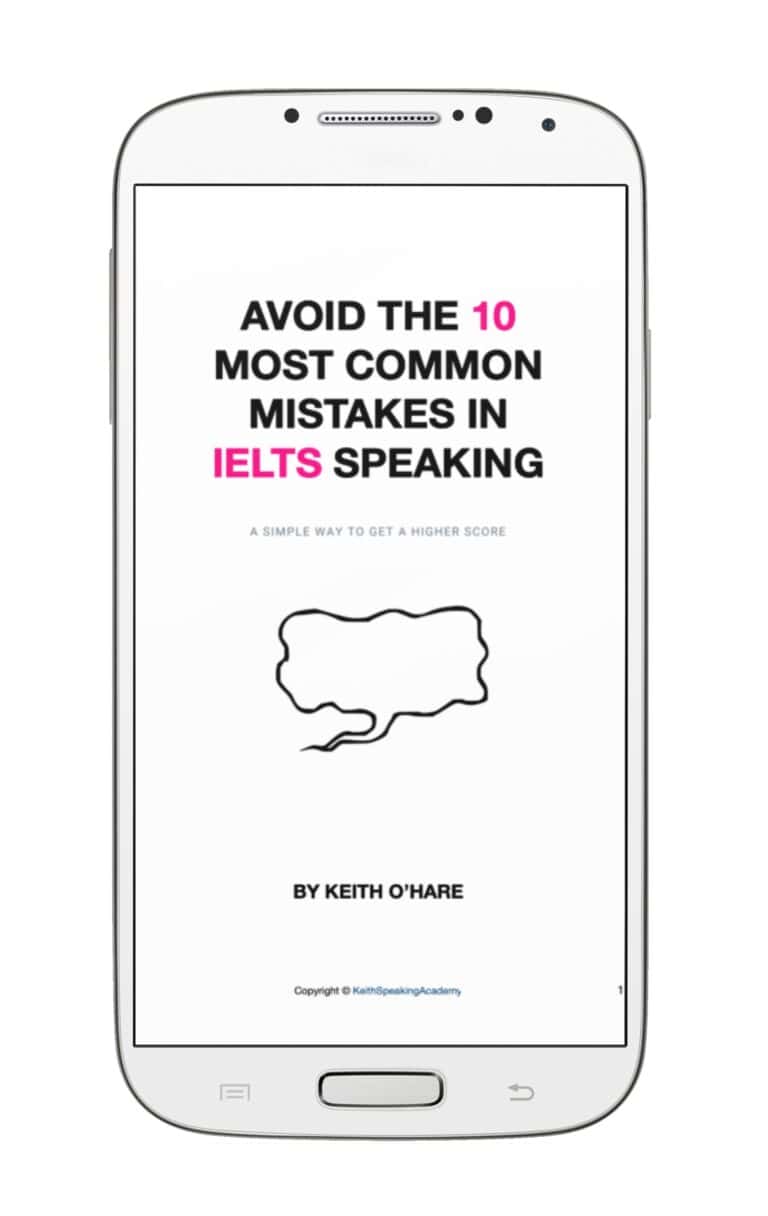IELTS Speaking Lesson about Nation and Culture
👇 Take this lesson with you! 👇
Table of Contents
Introduction
How on earth do you talk about ‘national identity‘, as well as ‘nation and culture’ in IELTS Speaking?
Well, in this free IELTS Speaking lesson on the topic of nation and culture, you will learn how to talk about nation and identity, as well as how we learn about other nations and cultures.
IELTS vocabulary: Topic of nation and culture
Listen, did you know there is an easy way to increase your vocabulary 3 or 4 times?
Really, it’s quite simple.
Learn Word Families
When you learn a new word, at the same time, learn the other parts of speech (the ‘word family’), such as noun, verb, adjective, adverb.
See how we can do this for this IELTS Speaking topic of nation and culture.
_______
culture (n.)
cultural (adj.)
cultured (adj.) – well-educated, well-read, intelligent, polite
culturally (adv.)
- Touching a child’s head is culturally unacceptable
- In my culture, it is rude to ask someone their age
- He is a very well-behaved and cultured person
More examples of word families
Noun | Person | Adjective |
Nation | Nationalist (s.o. who supports their country, often to the exclusion of other nations) | Nationalistic National |
Patriotism | Patriot (s.o. who loves their country) | Patriotic |
Stereotype (a bias or generalization, that may not be true) | Stereotypical |
How can I improve my vocabulary?
A great way to build up and improve your vocabulary is to learn find Word Families. This means learning the different forms of a word, including the noun, verb, adjective, adverb and so on.
So when you learn a new word like ‘economy’ (n.) , you should also learn;
- economical (adj.)
- economist (Person)
- economically (adv.)
A great tool for finding word families is this Longman Online Dictionary.
Click the link to check the word families for the word ‘culture’

What is culture?
Customs, behavior, traditions, language, festivals, food, literature,
norms, a set of norms, values, a set of values, rituals, social events
Culture molds peoples’ lives
Culture brings harmony and uniformity to some extent
Many countries have a fusion of cultures or a blend of cultures
To give your personal opinion, you can say:
- For me,
- From my perspective,
- From my point of view,
- Personally speaking,
Other useful expressions to talk about culture….
You can substitute the underlined words for any of the words above about culture.
Culture is all about behavior
It’s a way of life-related to food
It’s the way of behaving
It’s a set of behaviors
Culture is connected to traditions
It’s related to our customs
Globalization cancels local cultures
Passed from one generation to the next
It’s what makes us unique
Cultural diversity = a mix of cultures and races in a country or organization.
A melting pot = a mix of cultures and races in a country or organization.
The connection between nation and identity
Really this is about what it means to be your nationality.
For example for me, what does it mean to be British?
So I could talk about how British people see themselves.
I’d say the British are quite polite and a bit conservative, generally speaking. We love our pets and gardens, and also we are very independent, and we don’t take politics very seriously.
Actually, this is a very hard question to answer without using stereotypes or generalizations that may not be true.
In the video, I show 10 stereotypes and ask ‘which do you think are true for me?
The answers (and answers) were:
- I queue for the bus T
- I live in England F
- I don’t talk to people on the train T
- I drink tea at 11 T
- I speak like the queen F. (RP)
- I value diversity T
- I carry an umbrella everywhere F
- I drink tea at 5 F
- I value democracy T
- I eat fish and chips F
T – True
F = False
Integral (adj.) = important, necessary
Watching football is an integral part of being Spanish!
Quintessential (adj.) = the perfect example
A quintessential part of being British is our love of dogs!
Learning about other countries
We can learn from the Internet and also from reading books.
When we visit another country that is a chance to learn about that nation and its culture.
At times, we may meet nationals living or travelling abroad, and we can learn about their culture directly from watching their behaviour and listening to them.
I learn lots about other countries by listening to radio programmes about those countries.
Probably the most powerful way to learn about another country is to live or work there. You pick up so much more when you are participating in everyday life there.
Students' questions about nation and culture
Notice, my speech is not in perfect sentences. If you write your answers out in perfect sentences, it will not sound natural, it will sound like you are a book!
Avoid writing your answer out first, before speaking it.
Keith, why do you think we have to preserve cultures?
This is an interesting question because the question assumes we have to preserve culture.
Well, I think there are several aspects of our culture that are well worth preserving and some of those are traditional aspects.
I think, you know, customs around birthday celebrations, wedding celebrations, Christmas celebrations,
the way that we bring together the family to celebrate certain days in our culture, is a really good thing to do,
and one that we should make an effort to preserve because I think it helps bring family unity and stronger bonding within the society.
At the same time, there are certain aspects of culture that maybe we don’t have to preserve.
It’s inevitable for me, I think culture is fluid and forever changing, and to try and stick rigidly to tradition doesn’t really work either.
So, we have to be a little bit flexible in our approach to culture and not preserve things just for the sake of preserving them.
Keith, do you have any national heritage in your country?
It’s a very good question and I think the answer is yes we do.
For example, there is a very, very famous monument, if you like, or an area called Stonehenge.
It’s a historical site. It’s actually preserved by UNESCO as a heritage site.
It’s an area that dates back, and I am by no means an expert, but I think it dates back thousands of years and it’s just a group of or stones,
and some people think it was an area where the Pagans would pray to Gods and other scientists and anthropologists have different ideas.
I think another aspect of our heritage in the UK is our music,
and going back to the Beatles, who were hugely popular in the 1960s,
and the more contemporary bands like Oasis or Blur, who were all the rage in the 1990s,
dating up to even today where you’ve got some famous rappers who are British
and the name of, the name of the one I am thinking about has just slipped my mind, but not to worry.
So, I think music also is actually an interesting part of the national heritage in my country.
Pronunciation Files For Vocabulary From My Best Live Lessons
Use Words EASILY in English Conversations!
More Free IELTS Speaking Lessons
If you liked this lesson, leave a comment below!
There are more lessons you can follow in the links below too.
MONEY in IELTS Speaking. Learn how to talk about earning, saving and spending money.
WEATHER in IELTS Speaking. Learn different types of weather and how it affects.
CHANGE in IELTS Speaking. Learn to talk about personal, professional and global change, and get some tips for IELTS Speaking Part 3.
MOBILE PHONES in IELTS Speaking. Learn vocabulary of phones and ideas to talk about how we use phones in our lives.


